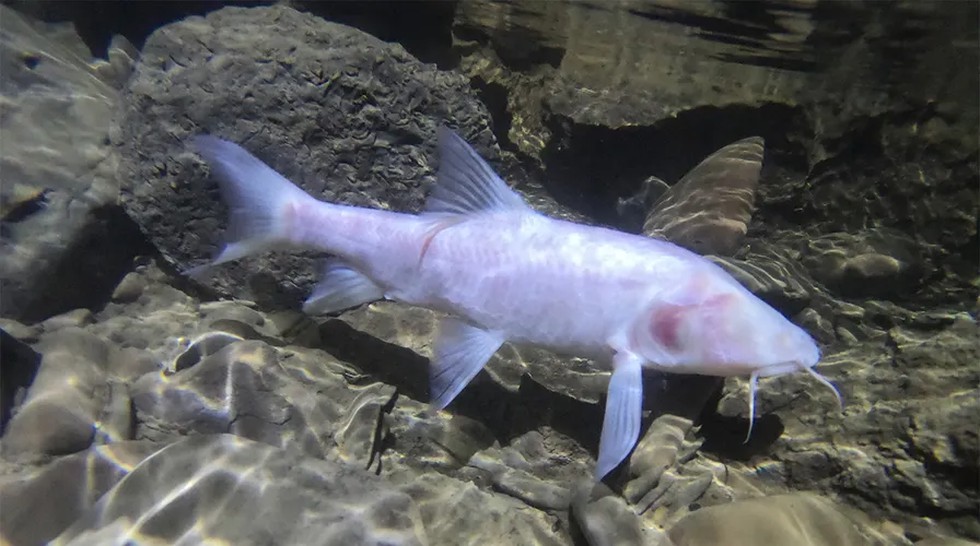A new species of loach, Schistura sonarengaensis, has been identified in the South Garo Hills district of Meghalaya, near the Bangladesh border. This discovery was announced by officials on Thursday.
Background
- Loach Overview: Loaches are freshwater, bottom-dwelling fish commonly found in rivers across Southeast Asia.
- New Species Discovery: The new species was found in the Sonarenga, Nakama, and Chiabol caves within the South Garo Hills district.
Research and Funding
- Research Team: The discovery was led by Dr. Khlur Mukhim, principal of Lady Keane College, alongside a team from Guwahati University and other collaborators.
- Funding: The research was funded by the ICAR – National Bureau of Fish Genetic Resources in Lucknow.
- Publication: The research paper detailing the new species was published by Wiley-Blackwell in the International Journal of Fish Biology of the Fisheries Society of the British Isles on Wednesday.
Species Description
- Scientific Name: Schistura sonarengaensis sp. nov.
- Habitat: Found in three cave-dwelling populations within the Barak-Surma-Meghna drainage system in South Garo Hills.
- Physical Characteristics:
- Prominent eyes
- 13-26 vertically elongated to circular black blotches on a grayish-black mid-lateral stripe
- Dull white or pale-beige body
Adaptations and Distinctions
- Adaptations: Unlike typical cave-dwelling species, this loach does not exhibit complete loss of eyes or pigmentation. It shows reduced pigmentation compared to surface-dwelling relatives.
- Genetic Analysis: Molecular analysis confirmed its distinction from other known species in the region.
- Comparison: The new species retains prominent eyes and is different from other Schistura species in the Barak-Surma-Meghna and adjacent river drainages, except for Schistura syngkai.
Conclusion
Dr. Mukhim highlighted that while the cave-dwelling fish is somewhat pale, it is not blind and differs significantly from other cave species in northeast India.
Multiple-Choice Questions (MCQs):
- What is the scientific name of the newly discovered loach species?
- A) Schistura syngkai
- B) Schistura sonarengaensis
- C) Schistura meghalensis
- D) Schistura barakae
- In which district of Meghalaya was the new loach species discovered?
- A) North Garo Hills
- B) South Garo Hills
- C) Jaintia Hills
- D) Khasi Hills
- Which organization funded the research for the new loach species?
- A) Indian Council of Agricultural Research (ICAR)
- B) National Bureau of Fish Genetic Resources
- C) Guwahati University
- D) Wiley-Blackwell
- What publication featured the research paper on Schistura sonarengaensis?
- A) Journal of Fish Biology
- B) International Journal of Fish Biology
- C) Fisheries Society of the British Isles
- D) Wiley-Blackwell Journal
- How is Schistura sonarengaensis different from other cave-dwelling fish?
- A) It has no eyes or pigmentation
- B) It retains prominent eyes and has reduced pigmentation
- C) It is completely blind
- D) It has a brighter coloration
